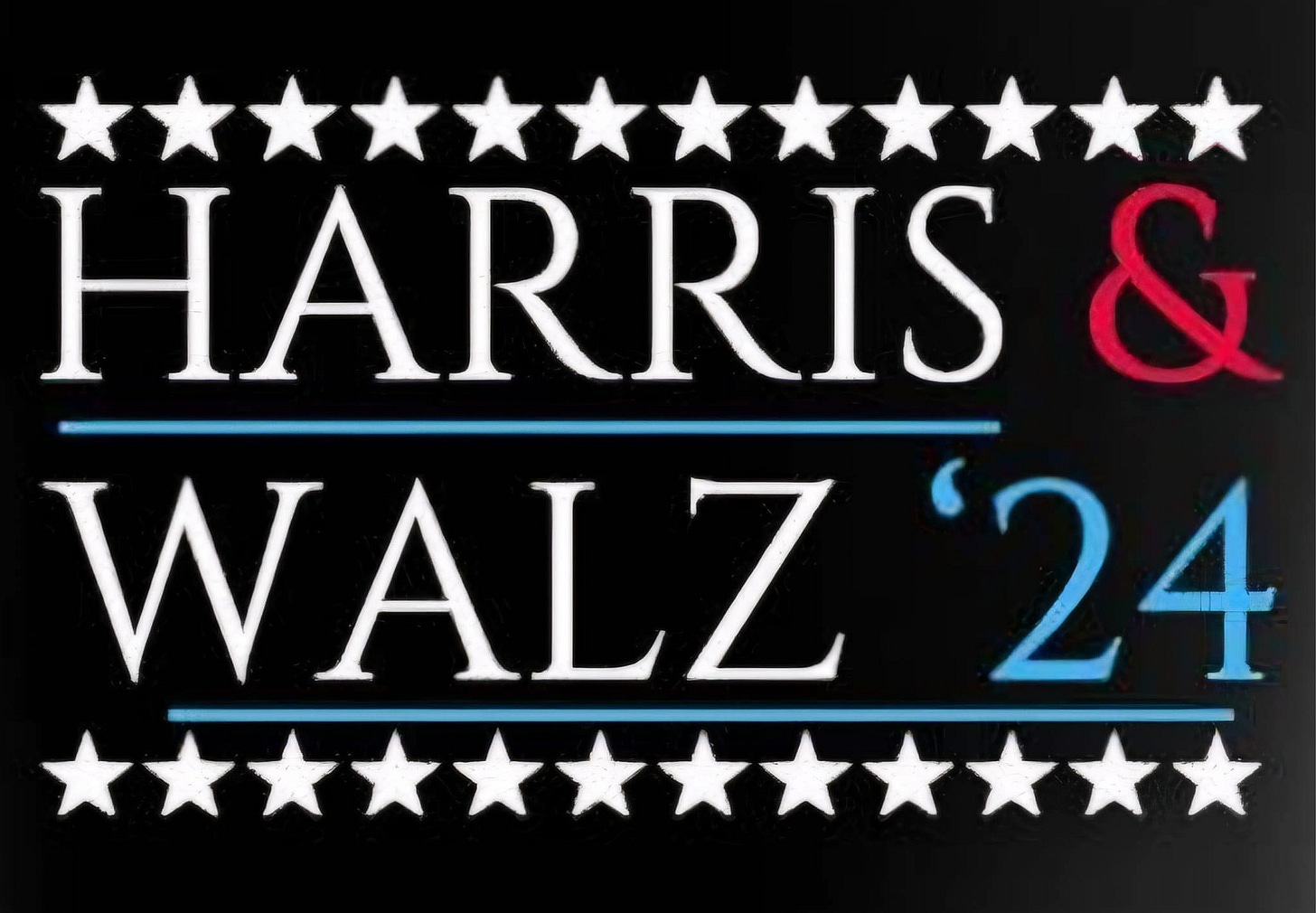Today In Black History: Former Secretary of State Hillary Rodham Clinton
How she has interacted with the Black community for decades.
Issue #705 Today In Black History, Monday, August 19, 2024
Did you know you can listen to each “We Are Speaking” post on the Substack App? Download the app!
Help us to reach our August 2024 goals: +250 total new subscribers, including +100 new paid subscribers:
Please share and subscribe to help us grow our publication.
Who are your “Fav Five” who would enjoy “We Are Speaking?” Send them the link!
If you like us, REALLY like us, please click the “Like” button at the end of this post!
We appreciate your support!
When we vote, we WIN!
Make sure to check your voter registration!
Today’s Black History WOW!
The Democratic National Convention begins today, and President Joe Biden and Dr. Jill Biden will be the keynote speakers tonight. THANK YOU, JOE!
The other primary speaker tonight is former Secretary of State Hillary Rodham Clinton, who should have been our first woman president. She won the popular vote by over 3 million votes but lost the Electoral College (EC) to Convicted Felon Donald Trump.
The reasons why Secretary Clinton lost the EC included the lies the media told and amplified about using her personal email server for a few government business emails that never put the government at risk, the 25+ years of right-wing attacks on her, and the people who voted for Bernie Sanders or 3rd-party candidates such as Jill Stein.
But what about Hillary Rodham Clinton and Black people?
Over the decades, Secretary Clinton, a prominent political leader, lawyer, and advocate, has developed a complex and multifaceted relationship with African Americans. Understanding her history and interactions with Black people reveals a journey marked by both advocacy and controversy.
Hillary Clinton's career began well before she entered the national spotlight. In the 1970s, she worked as a staff attorney for the Children's Defense Fund, an organization founded by Marian Wright Edelman, a prominent Black civil rights leader. This early experience reflected Clinton's genuine commitment to social justice and equality, particularly in the realm of children's rights, many of whom were African American.
As the First Lady of Arkansas and later of the United States, Clinton actively promoted initiatives to improve education and healthcare, issues of significant importance to Black communities. During Bill Clinton's presidency in the 1990s, Hillary championed the Children's Health Insurance Program (CHIP), which has particularly benefited African American children.
However, this period also marks some of the most contentious aspects of her relationship with Black America. The 1994 Crime Bill, signed into law by President Clinton (and voted on by Senator Joe Biden), included policies that led to the mass incarceration of many Black men. While Hillary Clinton was not the architect of this bill, her support of it and her "superpredators" comment during this time have been points of significant criticism. This period has left a lasting blemish on her legacy within the Black community.
As a U.S. Senator from New York from 2001 to 2009, Hillary Clinton’s tenure included efforts to address racial health disparities, support for historically Black colleges and universities (HBCUs), and advocacy for civil rights.
During her 2008 and 2016 presidential campaigns, Clinton’s relationship with Black voters was scrutinized closely. In 2008, her primary battle against Barack Obama, the first viable Black presidential candidate, saw her facing accusations of racial insensitivity from some. However, during her 2016 campaign, Clinton made concerted efforts to engage with the Black community more deeply. She received endorsements from influential African American leaders, artists, and activists.
Throughout her career, Hillary Clinton’s relationship with Black America has been characterized by both advocacy and contention. She has made significant contributions to policies benefiting African Americans but has also faced valid criticisms and challenges.
When she speaks tonight at the DNC, Secretary Clinton is expected to acknowledge the past but look forward to the future, which is the basis for Vice President Kamala Harris’s campaign.
Hillary Rodham Clinton is fully supporting the Harris/Walz campaign.
Secretary Clinton's mixed but significant history with Black America means she can help Vice President Harris navigate this critical demographic more effectively. She can address past controversies head-on while highlighting Harris's commitment to racial justice.
Today In Black History
In 1791, Benjamin Banneker, a Black inventor, surveyor, mathematician, astronomer, and planner of Washington, D.C., published his first Almanac. Banneker sent a copy of his Almanac to Thomas Jefferson, criticizing Jefferson’s pro-slavery stance.
In 1919, Afghanistan declared its independence from Britain after 100 years.
In 1950, Edith Sampson became the first African American appointed to represent the United Nations.
In 1954, Dr. Ralph Bunche, an international diplomat and the first Black winner of the Nobel Peace Prize, was named Undersecretary of the United Nations.
In 1955, NYC radio station WINS announced it would no longer play “copy” white cover versions of R&B records, including Pat Boone’s cover of Fats Domino’s “Ain’t That A Shame.” The station plays Domino’s version instead.
In 1958, the NAACP Youth Council began a sit-in at a “whites-only” lunch counter at Katz Drug Store in Oklahoma City, Oklahoma.
In 1966, the Beatles were pelted with rotten fruit and firecrackers and demonstrated against by the KKK in Memphis, TN, for performing for an integrated audience.
Our paid subscribers are encouraged to discuss this post in our W.A.S. Chat Community.
Join Pamela Hilliard Owens’s subscriber chat
Available in the Substack app and on the web
You are also welcome to view “We Are Speaking” in Substack Notes. You can also read other Substack publications without subscribing to them when you join Notes.







